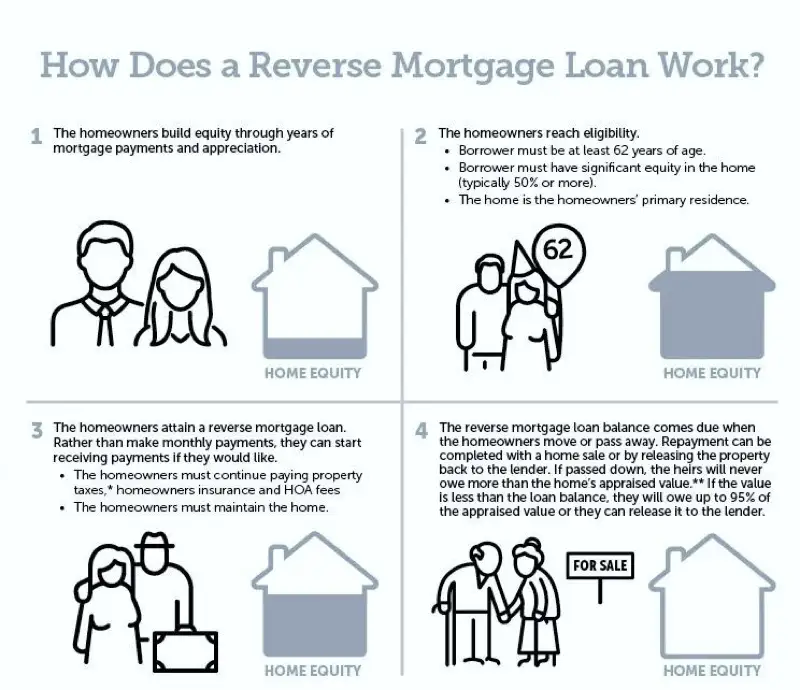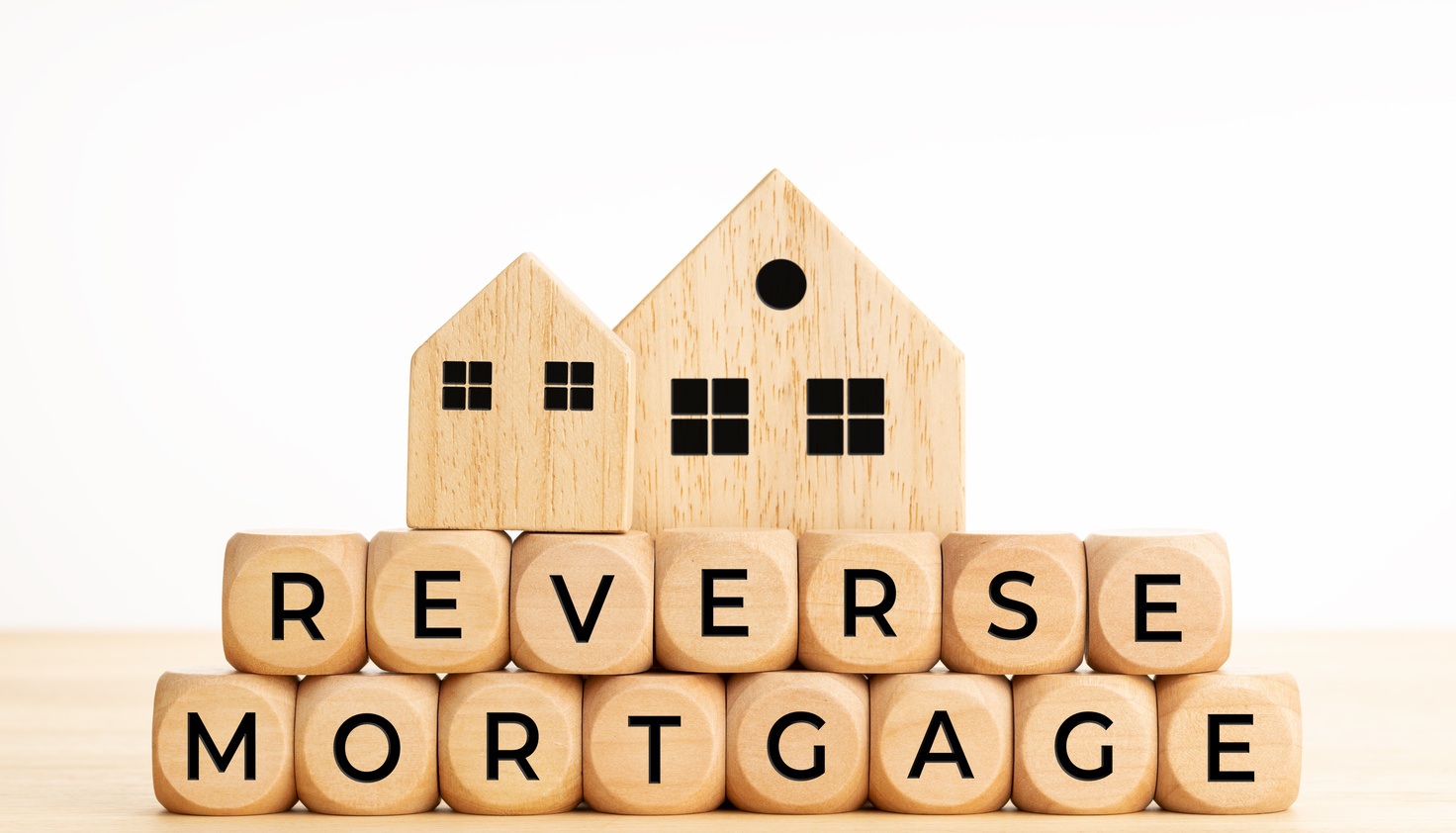Unlock Financial Flexibility: Your Overview to Acquiring a Reverse Mortgage
Understanding the intricacies of reverse mortgages is essential for homeowners aged 62 and older seeking economic liberty. As you consider this alternative, it is critical to realize not just exactly how it works but also the effects it may have on your monetary future.
What Is a Reverse Home Loan?

The essential allure of a reverse home loan depends on its potential to improve economic flexibility throughout retired life. Property owners can make use of the funds for various functions, consisting of clinical expenses, home enhancements, or daily living prices, thus supplying a safety and security net during a critical point of life.
It is vital to recognize that while a reverse mortgage enables boosted cash money flow, it likewise reduces the equity in the home with time. As interest accumulates on the impressive financing equilibrium, it is vital for potential customers to very carefully consider their lasting economic strategies. Consulting with an economic expert or a reverse mortgage specialist can provide important insights into whether this option aligns with an individual's financial goals and circumstances.
Eligibility Requirements
Understanding the eligibility requirements for a reverse home mortgage is vital for homeowners considering this financial alternative. To certify, candidates need to be at least 62 years old, as this age standard permits elders to gain access to home equity without regular monthly mortgage payments. In addition, the home owner needs to occupy the residence as their main home, which can include single-family homes, certain condos, and produced homes satisfying specific standards.
Equity in the home is an additional necessary demand; property owners generally require to have a considerable amount of equity, which can be established with an appraisal. The quantity of equity offered will directly affect the reverse home loan quantity. In addition, applicants must show the ability to keep the home, including covering real estate tax, house owners insurance coverage, and maintenance expenses, guaranteeing the property stays in good problem.
In addition, prospective consumers must go through an economic assessment to examine their income, credit rating, and general economic situation. This evaluation aids lenders identify the candidate's capacity to fulfill ongoing obligations related to the building. Meeting these needs is important for safeguarding a reverse home mortgage and ensuring a smooth financial shift.
Advantages of Reverse Home Mortgages
Numerous benefits make reverse mortgages an appealing option for senior citizens seeking to improve their monetary versatility. purchase reverse mortgage. Among the main benefits is the capability to transform home equity into money without the requirement for regular monthly home loan repayments. This feature allows seniors to access funds for various demands, such as clinical expenditures, home enhancements, or daily living expenses, thus minimizing monetary tension
Additionally, reverse mortgages give a safeguard; senior citizens can continue to live in their homes for as lengthy as they satisfy the funding demands, fostering security throughout retirement. The proceeds from a reverse home mortgage can likewise be utilized to delay Social Protection advantages, potentially resulting in greater payouts later.
In addition, reverse home loans are non-recourse fundings, implying that borrowers will certainly never owe greater than the home's worth at the time of sale, protecting them and their successors from monetary liability. The funds gotten from a reverse mortgage are normally tax-free, including one more layer of financial relief. Overall, these advantages position reverse home loans as a practical option for seniors looking for to improve their monetary scenario while preserving their valued home atmosphere.

Expenses and Charges Included
When thinking about a reverse home mortgage, it's vital to know the numerous prices and fees that can impact the general monetary image. Recognizing these expenses is important for making an educated choice concerning whether this financial product is right for you.
One of the primary expenses related to a reverse home mortgage is the source cost, which can differ by lender but generally ranges from 0.5% to 2% of the Bonuses home's assessed value. In addition, home owners should anticipate closing costs, which might consist of title insurance policy, assessment look here fees, and credit scores report fees, usually amounting to a number of thousand dollars.
One more considerable expense is mortgage insurance premiums (MIP), which protect the lending institution versus losses. This cost is normally 2% of the home's value at closing, with an ongoing annual costs of 0.5% of the continuing to be loan balance.
Last but not least, it is very important to take into consideration continuous expenses, such as real estate tax, homeowner's insurance policy, and upkeep, as the debtor stays responsible for these expenses. By meticulously examining these charges and costs, home owners can much better evaluate the financial effects of going after a reverse mortgage.
Actions to Get Going
Starting with a reverse mortgage includes several crucial actions that can assist simplify the process and guarantee you make notified choices. First, assess your monetary scenario and identify if a reverse home mortgage aligns with your long-lasting objectives. This includes assessing your home equity, present financial debts, and the necessity for extra earnings.
Following, study various loan providers and their offerings. Try to find reliable organizations with positive evaluations, clear cost frameworks, and affordable why not look here rate of interest. It's important to compare problems and terms to locate the ideal suitable for your demands.
After picking a lender, you'll need to finish a detailed application process, which generally requires documentation of income, assets, and home information. Participate in a counseling session with a HUD-approved counselor, who will give understandings right into the ramifications and obligations of a reverse home loan.
Final Thought
Finally, reverse mortgages present a viable alternative for elders looking for to improve their financial stability throughout retirement. By converting home equity into obtainable funds, home owners aged 62 and older can resolve different financial demands without the stress of regular monthly repayments. Recognizing the ins and outs of eligibility, benefits, and linked expenses is important for making informed choices. Careful factor to consider and preparation can result in better high quality of life, guaranteeing that retired life years are both safe and satisfying.
Comprehending the details of reverse home loans is essential for house owners aged 62 and older seeking monetary liberty.A reverse mortgage is an economic product developed largely for homeowners aged 62 and older, enabling them to transform a portion of their home equity into cash money - purchase reverse mortgage. Consulting with a financial consultant or a reverse home mortgage professional can offer useful understandings into whether this choice straightens with an individual's financial goals and scenarios
Furthermore, reverse mortgages are non-recourse finances, suggesting that borrowers will never owe more than the home's worth at the time of sale, securing them and their successors from economic liability. In general, these benefits setting reverse home loans as a sensible remedy for elders seeking to improve their financial situation while maintaining their cherished home environment.
Comments on “Can You Purchase Reverse Mortgage as Part of Your Financial Strategy?”